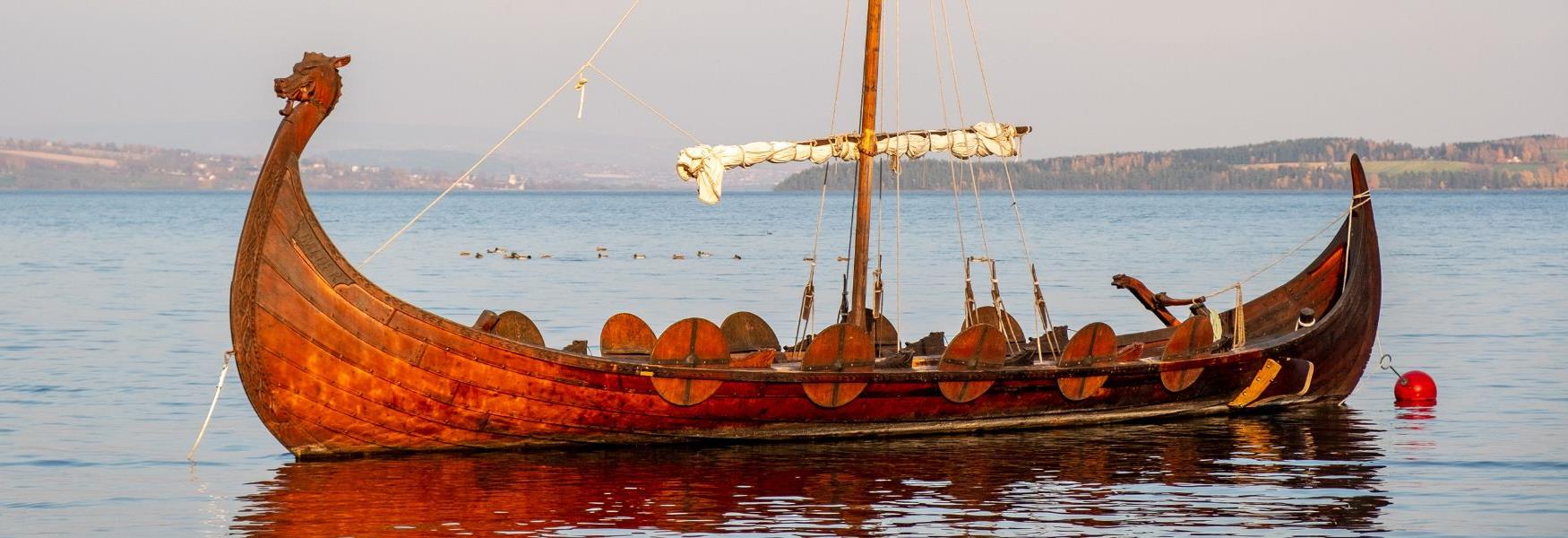To build your own Itinerary, click  to add an item to your Itinerary basket.
to add an item to your Itinerary basket.
Already saved an Itinerary?



You are here: UK History > Viking Britain > Origins of Viking Britain
The first records of a Viking raid are from the year 793 with the attack on Lindisfarne, which is on the northeast coast. There had been other skirmishes along the south coast in earlier years, however, the raid at Lindifarne had the most detailed accounts, particularly as the Viking raiders attacked and destroyed the church. The aim of the raid was to steal portable wealth, which included items like gold and silver, but also humans, who would have then been sold at markets in the east.
The early Viking raids mostly featured only a few ships that were attacking poorly defended coastal areas, something that continued for around a decade. This escalated after 835, when larger Viking fleets began to appear and force a confrontation with royal armies. In the year 838, this started to come to...Read More
The first records of a Viking raid are from the year 793 with the attack on Lindisfarne, which is on the northeast coast. There had been other skirmishes along the south coast in earlier years, however, the raid at Lindifarne had the most detailed accounts, particularly as the Viking raiders attacked and destroyed the church. The aim of the raid was to steal portable wealth, which included items like gold and silver, but also humans, who would have then been sold at markets in the east.
The early Viking raids mostly featured only a few ships that were attacking poorly defended coastal areas, something that continued for around a decade. This escalated after 835, when larger Viking fleets began to appear and force a confrontation with royal armies. In the year 838, this started to come to a head when a Viking fleet raided the Cornish coast and had a battle with the Saxon king of the area. The Vikings were ultimately defeated but it was a precursor to what was to come.
The Vikings were already ruling Iceland and parts of what would become the Scottish isles, particularly Orkney from where they ruled most of Scotland. The Isle of Man also became a Viking kingdom as did areas of Ireland, particularly in the Republic.
In England, they successfully completed more and more raids, until in 866, they captured what is now York, making it their capital. The name of the city even comes from a Viking word, before making their way south and consistently battling the kings of Mercia and Wessex.
King Alfred of Wessex is still remembered as Alfred the Great and defeated the Vikings at the Battle of Edington in 878. He would later take London from them and fortify it, only making a treaty with the Vikings after their leader converted to Christianity. The treaty split England between the British and the Vikings, with the Viking area being subject to Danish law. King Alfred managed to unite most of the rest of the country, his grandson Athelstan became the first real king of England (or as we know it now). He led another victory against the Vikings at the Battle of Brunaburh in 937, which led to him taking over the Danish area of England and killing the Viking king of York. After this, the partition dissolved with England forming as one country. This didn’t stop raids from the Vikings however, which would continue for around 300 years.
In fact, between 1013 and 1042, England would have four Viking kings, the best known of which was known as King Cnut, the King of Denmark and England. He was a Christian and as such, didn’t force Danish law but did attempt to create a strong Atlantic Empire which encompassed Scandinavia and Britain.
The final Viking invasion of England took place in 1066, Harald Hardada and his army sailed along the River Humber and took on the current English King Harold Godwinson in a bloody battle, Harold won but then immediately had to head back south to take on William the Conqueror who had arrived with his Norman horde. The Battle of Hastings saw a decisive win for the Normans and a new era for England.
Read Less© Visit Heritage 2024. All Rights Reserved


We are now retrieving your search results. Please wait, this may take up to 30 seconds


![]()
Supporting the Destination
![]()
Quality Guarantee
We are now retrieving real time availability results. Please wait, this may take up to 30 seconds.

.png)


